The kill ratio was 100-to-1 in our favor. The destruction ratio was much, much greater than that. To this day, thousands of Gazans are living in tents because we won’t let them import cement to rebuild the homes we destroyed. We turned the Gaza Strip into a disaster area, a humanitarian case, and we’re keeping it that way with our blockade.
Meanwhile, here on the Israeli side of the border, it’s hard to remember when life was so safe and secure.
So let’s decide: Who was the victim of Operation Cast Lead, them or us?
No question – us. We Israelis were the victims and we still are. In fact, our victimhood is getting worse by the day. The Goldstone report was the real war crime. The Goldstone report, the UN debates, Amnesty International, Human Rights Watch, the Red Cross, B’Tselem, the traitorous soldiers of Breaking the Silence and the Rabin Academy – those were the true crimes against humanity. This is what’s meant by “war is hell.”
It is we who’ve been going through hell from the war in Gaza. It is we who’ve been suffering.
Gazans? Suffering? What’s everybody talking about?
We let them eat, don’t we?
This imaginary monologue is how we actually see ourselves today. We initiated the war in Gaza, we waged one of the most one-sided military campaigns anyone’s ever seen – and we’re the victims.
We’re fighting off the world with the Holocaust; witness Prime Minister Binyamin Netanyahu at the UN with his Auschwitz props. “We won’t go like lambs to the slaughter again,” vowed his protégé, Finance Minister Yuval Steinitz, in a cabinet discussion of the Goldstone report.
Auschwitz, lambs to the slaughter, Operation Cast Lead. To Israelis today, it’s all of a piece, it’s one story, one unbroken legacy of righteous victimhood.
The truth is that the State of Israel has never been a victim, and our likening of ourselves to the 6 million has been embarrassing from the beginning – but now? After what we did in Gaza? With the stranglehold we have on that society, while we over here live free and easy?
Victims? Lambs to the slaughter? Us?
No, this has gone beyond embarrassing; this is out-and-out shameful.
And, despite our excuses, it’s not that we’re “traumatized” by the past into believing that we’re still weak, still the frightened, powerless Jews about to be led to the gas chambers. Many Holocaust survivors still believe this, and to some very limited extent, this vestigial fear still takes up space in the Israeli mind.
But by now, 64 years after the Holocaust, 42 years after seeing in the Six Day War how strong we’d become, we know, whether we admit it to ourselves or not, that we aren’t the victims anymore. We know we aren’t a continuation of the 6 million but rather a deliberate and stark departure from them.
THE REASON we tell ourselves and the world that we are victims is because we know, whether we admit it to ourselves or not, that victimhood is power. Victimhood is freedom. A victim can’t be told to restrain himself. A victim fighting for survival can’t be accused of abusing his power because, after all, his back is to the wall, he’s desperate.
On the facts, it’s very hard to convince ourselves, let alone the world, that Gaza and its Kassams have pushed Fortress Israel’s back to the wall, that we’re desperate, that we’re struggling to survive. So, to convince ourselves and the world that this really is so, we do two things.
One, we refuse to acknowledge any facts that mar this image of ourselves as victims, and instead go over and over and over only the facts that fit the picture.
We talk only about the thousands of Kassams fired at Sderot; we never mention the thousands of Gazans we killed at the same time.
We talk only about Gilad Schalit; we never mention the 8,000 Palestinian prisoners we’re holding.
And we never mention our ongoing blockade of Gaza or the devastation it does to those people.
The second thing we do to convince ourselves and the world that we’re still victims is to never, ever, ever let go of the Holocaust – because that’s when we really were victims. Victims like nobody’s ever known, victims a million times worse than the Gazans.
Auschwitz, lambs to the slaughter. Remember us, the people of the Holocaust? That wasn’t the Middle East’s superpower you saw fighting in Gaza.
That was the 6 million.
So you can’t blame us. We’re immune from your criticism. We’re the biggest victims the world has ever known. We’re desperate, so don’t tell us about kill ratios and disproportionate use of force and collective punishment. We’re fighting for our survival.
This is what we tell ourselves and the world, and, in the face of what we did and are still doing in Gaza, it has become intolerable. We are not the 6 million. The 6 million were powerless Jews three generations ago; we cannot wrap our abuses of power in their tragedy.
Instead, let’s take a good, hard look at what we did and what we’re doing in Gaza. Then let’s take a good, hard look in the mirror. And then let’s admit who’s the true victim here and now, and, more importantly, who isn’t.
Editor’s Comment — Larry Derfner is a columnist for the conservative Jerusalem Post. Presumably the paper’s editors feel moderately comfortable publishing his provocative commentaries because the paper provides “balance” with other pieces by rabid Likudniks like Caroline Glick. Still, at this time I doubt that there is a single newspaper editor in the United States who would have the guts to publish Derfner’s piece.
Even so, the times they are a-changin’.
Americans are losing patience with Israel and the media knows it. It will be a while before we see a New York Times editorial calling for a cooling in US-Israeli relations, but the views of ordinary Americans are now percolating up through newspaper letters pages. This is where editors are testing the water to see how much space they might dare provide for more honesty when the topic is Israel.
Views once only voiced at the political margins of the blogosphere are now moving into the mainstream. Only yesterday, Andrew Sullivan — not known as an anti-Zionist — had this to say:
One question that should always be asked of an ally: what is that ally doing for the US? Since the end of the Cold War, that question has been increasingly hard to answer with respect to Israel.
Strategically, Israel is obviously a huge burden for the US, making relations with Muslim or Arab nations much harder, and undermining any attempt to portray American intervention in, say, Iraq or Afghanistan, as beneficent rather than predatory. It’s a big drain on the Treasury, as Israel consumes a vast amount of military and non-military aid.
Meanwhile, Congress continues to march in lockstep with the Israel lobby — but this can’t go on forever. As the taboos on criticizing Israel and questioning US-Israeli relations break down, members of Congress will come under increasing pressure to explain how they can justify supporting a country that has become a strategic liability at America’s expense. Israel’s most stalwart defenders should send their donations to a pro-Israel lobby of their choice, but they should no longer expect that support to be subsidized by the US taxpayer.

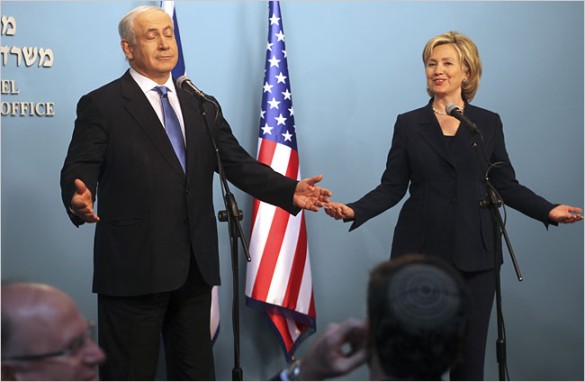
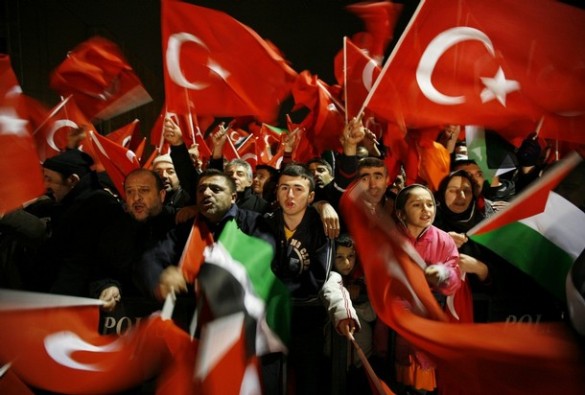
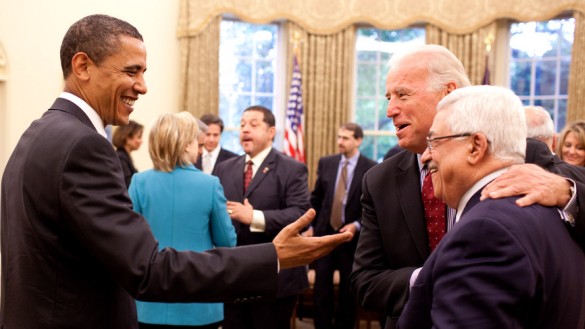
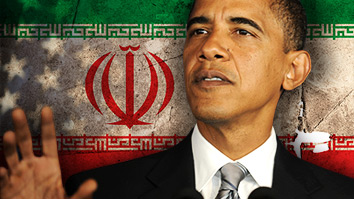 new WorldPublicOpinion.org poll of Iranians finds that six in 10 favor restoration of diplomatic relations between their country and the United States, a stance that is directly at odds with the position the Iranian government has held for three decades. A similar number favor direct talks.
new WorldPublicOpinion.org poll of Iranians finds that six in 10 favor restoration of diplomatic relations between their country and the United States, a stance that is directly at odds with the position the Iranian government has held for three decades. A similar number favor direct talks.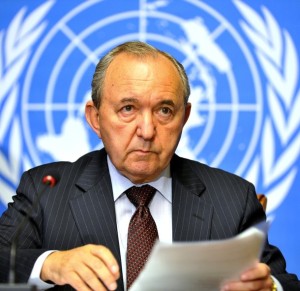 or months, the Israeli human rights community has been beseeching its government to launch a credible, independent Israeli inquiry as the alternative to being hauled in front of the international community. Nine Israeli human rights NGOs responded to the Goldstone report by repeating this call and suggesting the Israeli government take the Goldstone findings seriously.
or months, the Israeli human rights community has been beseeching its government to launch a credible, independent Israeli inquiry as the alternative to being hauled in front of the international community. Nine Israeli human rights NGOs responded to the Goldstone report by repeating this call and suggesting the Israeli government take the Goldstone findings seriously.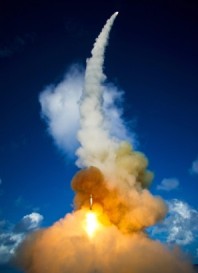 he White House will shelve Bush administration plans to build a missile-defense system in Poland and the Czech Republic, a move likely to cheer Moscow and roil the security debate in Europe.
he White House will shelve Bush administration plans to build a missile-defense system in Poland and the Czech Republic, a move likely to cheer Moscow and roil the security debate in Europe.